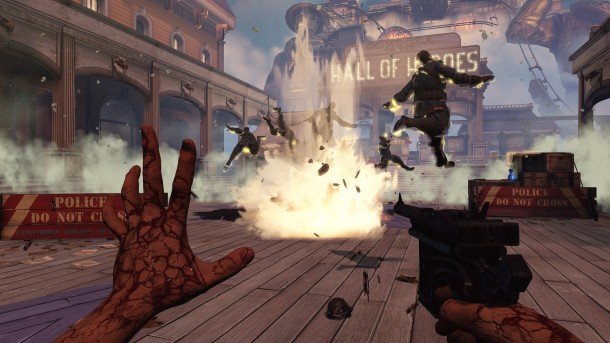Violence is "a part of the storyteller's toolkit," says Ken Levine

BioShock Infinite lead Ken Levine addressed the ongoing debate about violence in games in an NPR interview (via GameSpot ) yesterday. During the talk, Levine defended games by stating that using violence as a narrative device is as old as storytelling itself.
"Violence, for better or for worse, goes back to the dawn of narrative and is a part of the storyteller's toolkit," Levine said. Games, like all new things, are subject to extra scrutiny, he suggested, using his own childhood memories of nerding about in Dungeons & Dragons as an example.
"I wasn't a very popular kid," he explained. "I was a nerdy, little kid. And I didn't have friends because I wasn't very good at socializing. And I found Dungeons & Dragons—if you remember, back in the '70s there was this big human cry about Dungeons & Dragons; kids were going off and killing themselves and disappearing into caves. And that happened with comic books and that happened with rock and roll music.
"My point is, for me personally, games were a way around being 'that kid,'" he continued. "I'm not speaking as a scientist here. We can argue the science, but I'm not the best guy to do that."
The biggest gaming news, reviews and hardware deals
Keep up to date with the most important stories and the best deals, as picked by the PC Gamer team.
Omri Petitte is a former PC Gamer associate editor and long-time freelance writer covering news and reviews. If you spot his name, it probably means you're reading about some kind of first-person shooter. Why yes, he would like to talk to you about Battlefield. Do you have a few days?


